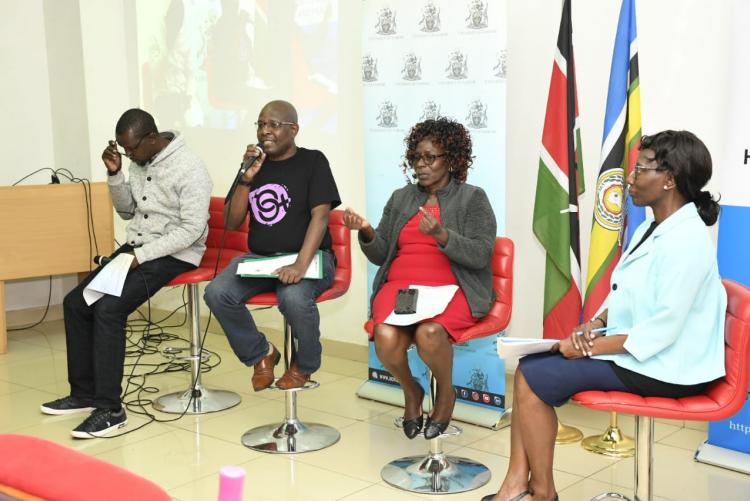Exploring African Sexualities at UoN: Varsity Colloquium
21st November,2023
“Is it possible for the African Communities to understand sexuality from a rational point of view?” This was a discussion held by the University of Nairobi in partnership with The Kenya Legal & Ethical Issues Network on HIV and AIDS (KELIN) and Trust for Indigenous Culture and Health (TICAH) to enlighten on the infringements of the basic human rights of those who identify as sexual minorities. The conversations highlighted the traditions behind today's perspectives on African Sexualities and the human rights aspect of the diverse sexual orientations.
“In Kenya we are aware that alternative sexual realities exist”, Dr. Kathleen Anagwe said as she moderated the panel discussions on how perceptions on sexual orientation have been introduced, promoted, administered and enforced.
On the panel discussions, Christine Nkonge, one of the panelists recognized the rule of law, social justice, good governance and minority rights in Kenya, emphasizing that homosexuals are at a risk of violence and discrimination causing stigma and human rights violation as Kenya continues to criminalize sexualities that defy the order of law. “Is an LGBTQ individual a person under the constitution?”, she reviewed that as she talked about the Kenya laws around the matter.
Godfrey Owino addressed the African perspectives on theologies of sexuality in Africa delving into the aspects of how colonial theologists phrased homosexuality and gender diversity as something pathological that needs to be addressed and passed it down to today. “That's why there are conversion therapists for people who identify as sexual minorities in African spaces”, he said. He urged the emerging theologists in African countries to shift from that constructed theological narrative on sexuality passed down to them.
Furthermore, Dr. Dorcas Chebet, focused on matters of human sexuality, and dignity. She elaborated that human deserve the opportunity to enjoy the pleasures of the dignity of human sexuality without shame. “I strongly affirm that sex is the highest form of the divine that every person has the right to enjoy and all we have to do is steer sex dignity thoughts”, she concluded her colloquy.
“East African states have laws by British masters on unnatural sexualities and homophobic ideas”, Dr. Khamati Shilabukha, on the panel discussions, as he gave prominence to Africa, culture and sexualities. With great clarity, he illustrated the ideas of African concepts on sexualities and the traditions practiced.
Also present was Dr. Francis Owakah, a Senior Lecturer and Coordinator, Centre for Human Rights & Peace (CHRP) at the University of Nairobi who posed a question to the crowd, “Is it the state's mandate to tell us whether our choices in sexuality are right or not?”. He placed emphasis on the role of academias, which he said was to take part in the discourse and discuss and clarify issues on African sexualities.
Prof. Esther Mombo, a senior lecturer at the university concluded the forum by emphasizing that as Africans, whose sexualities are diverse, we should not mute our voices on these matters but rather elaborate ourselves for inclusion.
Get more information on the colloquium at:
https://www.youtube.com/live/m_aAF-N8u5k?si=xlj9hTAfmWD3mIz9

